Watching the film is like watching a bomb explode in slow motion. There’s hardly a moment to catch your breath as the breakneck pace and Ludwig Göransson’s thundering score rush viewers from one fragmented scene to the next.
Equal parts horror movie and dark historical epic, “Oppenheimer” wastes no time trying to save the souls of its subjects. It portrays its protagonist and the many supporting players around him in plain terms, regular people, some brilliant and some cunning, who nonetheless choose to bring mass murder to the world.
Oppenheimer wraps up its story by revealing the conversation between Oppenheimer and Albert Einstein. The film goes back to that moment after Oppenheimer’s hearing revoked his security clearance and the Senate denied Strauss’s appointment to the position of Secretary of Commerce.
Einstein tells Oppenheimer that after the world has punished him enough, they’d give him medals and forgive his work on the atomic bomb, but forgiveness would be for them, not for Oppenheimer.
In Oppenheimer’s head, he watches the world’s destruction due to nuclear war.
1. The Ending of ‘Oppenheimer’ Reveals the Lasting Legacy of the Man
When Oppenheimer stands alone, with one final vision of the world being utterly destroyed by his creation, the relentless terror of what they’ve done is not tempered by his speaking it aloud.
His empty acknowledgment came too late for the thousands who died and the many more who could in an instant. At this moment, without anything else to say, his legacy is laid bare. There is no coming back from it, no salvation for him, only the looming specter of death he brought down upon this world.
2. Strauss’s vendetta
After World War II ended, “Oppenheimer” shifted focus to its final act. Lewis Strauss becomes a primary villain, as it’s revealed that he orchestrated the farcical hearings to revoke Oppenheimer’s security clearance. Because so much of the film is spent on the Manhattan Project, little time is devoted to developing the relationship between the two men.
Early on, Strauss courted Oppenheimer to chair the Institute for Advanced Study at Princeton after the war. But Oppenheimer also embarrassed him on several occasions, generally related to his opposition to the H-bomb, of which Strauss was a huge proponent.
Though his efforts to sweep Oppenheimer off the political stage were successful, compensation came when Strauss was denied a cabinet appointment. David Hill, a scientist who long opposed further nuclear weapons development, gives damning testimony against Strauss, assuring his rejection.
Aside from being the man who made it his mission to destroy Oppenheimer, Strauss represents an opposite kind of historical figure. He wishes to be remembered for his impact on the world. He’s obsessed with how others view him and how he’ll be remembered. Oppenheimer, by contrast, is made famous whether he likes it or not. His actions immortalize him as a hero to some and a villain to many others.
Strauss never achieves that level of infamy, though, in a twisted way, he wants it.
3. Oppenheimer’s Final Conversation With Einstein
Oppenheimer and Einstein had a similar trajectory in life, and their final conversation in the film, which took place in 1947, represents their paths in life. The discussion with Einstein involves Oppenheimer realizing he’d started a chain reaction in the arms race.
The creation of the atomic bomb led to something even more dangerous, and Oppenheimer no longer has any control over it. Einstein admits he had lost the ability to understand what he’d started. His comment alludes to Einstein’s theory of relativity which led to quantum mechanics, which ultimately paved the way for the atomic bomb’s creation.
Einstein predicts that Oppenheimer will be given a medal when the world feels like they’ve punished him enough, but it will be more about assuaging other people’s guilt for screwing him over. This includes Benny Safdie’s Edward Teller, who turned against Oppenheimer during the security hearings.
The two scientists are essentially the same; they’re in different stages of their careers, as are the effects of their work’s destructive nature. Once it’s in motion, neither Oppenheimer nor Einstein could stop what came next. They could only watch as it spiraled.
4. What Oppenheimer’s Destruction Of Earth & Final Shot Means
Oppenheimer’s final shot is of the destruction of Earth from nuclear war. Oppenheimer sees all this in his mind, imagining the catastrophe set loose by the creation of the atomic bomb and how much worse it could be.
Oppenheimer watches raindrops on the pond in the final shot, paralleling the film’s start. It’s almost as if he’s seeing the quantum world. The atoms are the raindrops, small but impactful. The explosions resulting from nuclear weapons are essentially the quantum world made bigger.
Oppenheimer created what he feared as a young man, turning the world into a global horror; the atomic bomb was only the beginning.
5. What Happened To Oppenheimer After The Events Of The Movie?
After the movie’s events, Oppenheimer’s life was marked by controversy and regret. He was stripped of his security clearance in 1954 after being accused of having communist sympathies. This effectively ended his career in government and national security. He continued to work as a scientist, but his influence was greatly diminished.
He moved with his family to St. John in the Virgin Islands. He continued to give lectures and grew more vocal about how scientific inventions were being used and the threat they posed to the world. Oppenheimer established The World Academy of Art and Science with Einstein and other scientists. He also joined Princeton’s Institute for Advanced Study as its director in 1947.
Oppenheimer also became increasingly vocal about his opposition to nuclear weapons. He argued that they were too dangerous and that their use would only lead to more war and destruction. In 1963, he was awarded the Enrico Fermi Award, the highest civilian award in the United States for achievement in nuclear science.
Oppenheimer died of throat cancer in 1967. He was 62 years old. His legacy is complex and contested. He is remembered as both a brilliant scientist and a flawed human being. His work on the Manhattan Project helped end World War II, but it also led to the development of nuclear weapons, potentially destroying the world.
Oppenheimer’s life and legacy continue to be debated today. Some see him as a hero who helped to end World War II, while others see him as a villain who helped to create the most destructive weapon in human history. His story is a reminder of the complex moral choices that scientists and policymakers face when dealing with the power of nuclear weapons.
6. Can We Forgive Oppenheimer?
J. Robert Oppenheimer was dubbed the Father of the Atomic Bomb, and though he did what was asked of him, the scientist ultimately lost everything following the security hearing. His friends, labeled a traitor, betrayed him, and his relationship with Jean Tatlock was dragged into the proceedings. He was publicly humiliated, his reputation smeared, and he never recovered.
Despite his accomplishments and going through the hearings without fighting back, Kitty claims the world wouldn’t forgive him for the atomic bomb.
Can Oppenheimer be forgiven? In 2022, the Department of Energy released a statement reversing the decision to revoke Oppenheimer’s security clearance in 1954, which suggests the U.S. government has forgiven him. But has the world? It might depend on whom one asks. The effects of the atomic bomb, the 200,000 deaths it caused in Hiroshima and Nagasaki, and the nuclear weapons development that came after are still being felt today.
While Oppenheimer became a proponent of nuclear peace later in life, his legacy is more of a cautionary tale.
7. About Oppenheimer
Oppenheimer is a movie written and directed by Christopher Nolan. It’s based on the Pulitzer-winning book ‘American Prometheus: The Triumph and Tragedy of J. Robert Oppenheimer’ by the late Martin J. Sherwin and Kai Bird. The movie is produced by Nolan, his wife Emma Thomas and Atlas Entertainment’s Charles Roven.
J. Robert Oppenheimer was a theoretical physicist who is now considered the Father of the Atomic Bomb. He was responsible for the research and development of the first nuclear bombs, later called the Manhattan Project.
The biographical movie by Nolan sees Peaky Blinders’ star Cillian Murphy essaying the lead role of J. Robert Oppenheimer. The movie released in theaters on July 21, 2023.
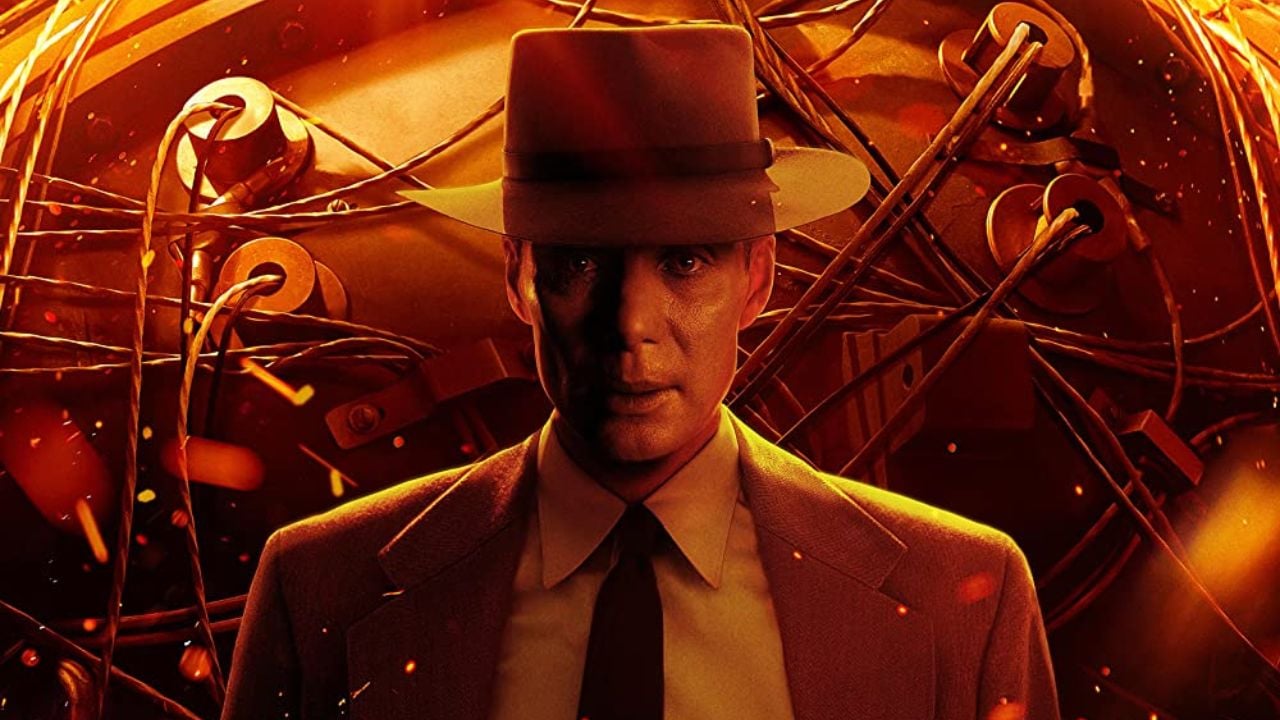
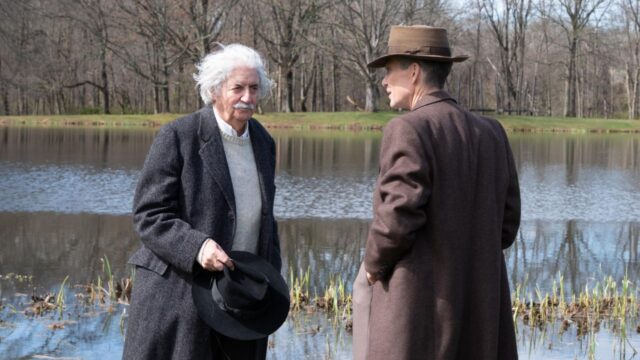
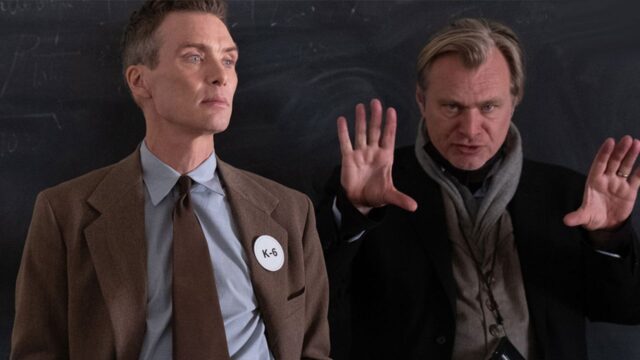
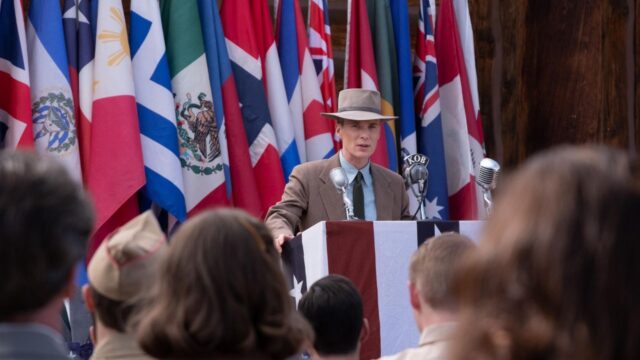



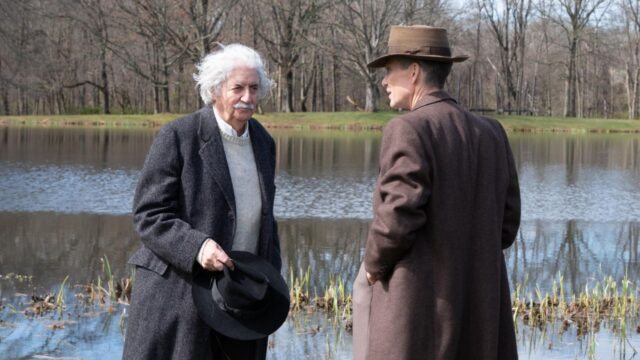
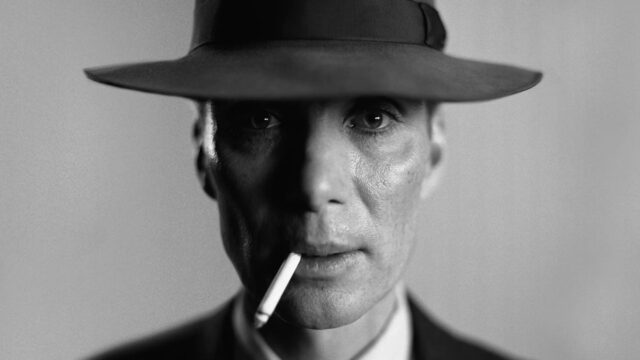
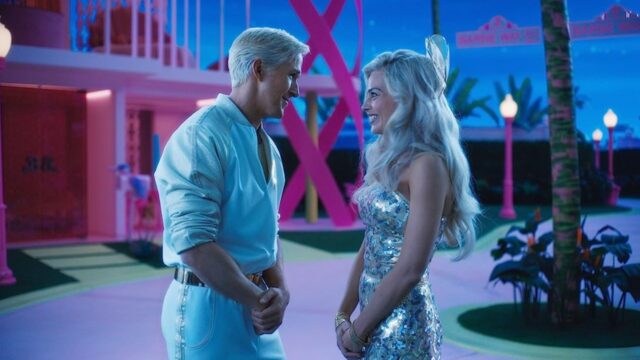

No Comments on Oppenheimer Ending Explained: Oppenheimer’s Vision of Nuclear Armageddon